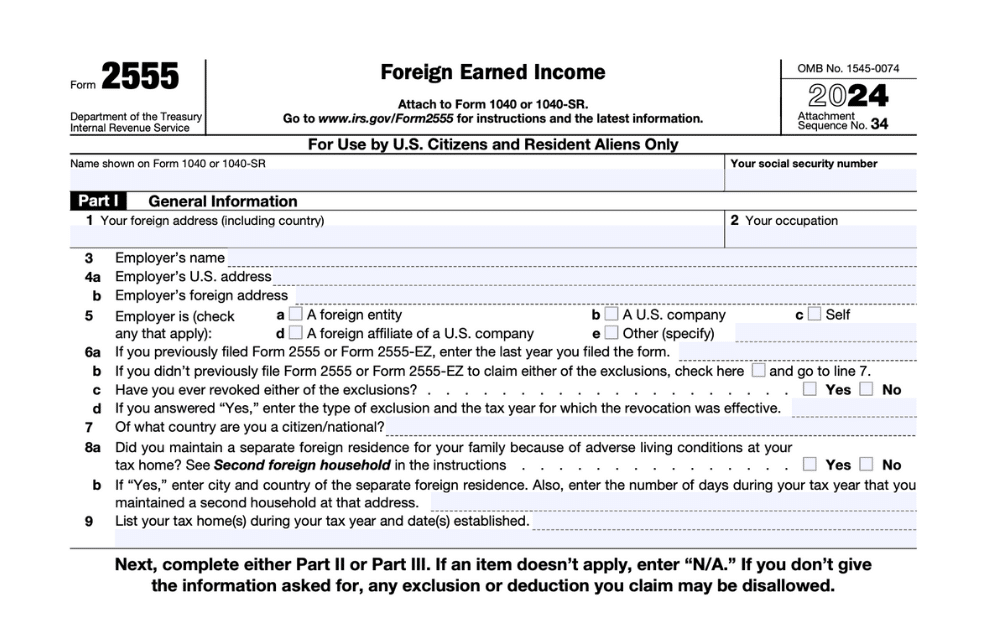Earned vs. Unearned Income (Difference Explained)

Americans living abroad are required to report their worldwide income to the IRS every year. Not all forms of income are taxed equally. The most important distinction is earned vs. unearned income. But what is earned and unearned income — and how does it fit into your expat taxes? Let’s take a look.
What Is Earned Income?
Earned income is the compensation you receive in exchange for the services you provide. This includes wages, salaries, bonuses, tips, commissions, and other similar forms of payment. Vacation pay, sick leave, or severance pay are also considered earned income. Even union strike benefits, disability benefits, and income from self-employment fall under this category.
The IRS requires you to report all earned income on your tax return, regardless of where it originates. Whether you’re working for an employer or running your own business, you must include all sources of earned income when filing your taxes.
What Is Unearned Income?
Unearned income, also known as passive income, is money you receive without actively working for it. Common examples include interest from bank accounts, dividends from investments, pension payments, and rental income. Capital gains, annuity payments, Social Security benefits, alimony, and gambling winnings are also considered unearned income.
The Difference Between Earned Income and Unearned Income
If you earn money by providing services or selling goods, it’s considered earned income. On the other hand, if your income comes from investments or other sources that don’t involve active work — such as investments or most rental income — it’s unearned income.
Use our simple excel calculator to get an estimate of how the foreign earned income exclusion will save you money. It will make your day!

How Earned vs. Unearned Income Is Taxed
Both earned and unearned income must be reported on your tax return, but the IRS taxes them differently based on their origin.
Earned Income
Earned income, such as wages, salaries, tips, and self-employment earnings, is generally subject to federal income tax, Social Security tax, and Medicare tax. In addition to these taxes, your employer may withhold a portion of your paycheck for these obligations, or you’ll need to manage estimated tax payments if you’re self-employed.
What is the Earned Income Tax Credit (EITC)?
The EITC is a refundable tax credit designed to benefit low- to moderate-income workers and families. It reduces the amount of tax owed and may result in a refund. The credit amount varies based on income, filing status, and the number of qualifying children. To be eligible, taxpayers must meet specific requirements, including earning income below certain thresholds and having investment income below a specified limit.
Below is the table for the Earned Income Tax Credit (EITC) in Tax Year 2024 (filed in 2025). These figures include the maximum adjusted gross income (AGI) thresholds, the investment income limit, and the maximum credit amounts.
1. Maximum AGI for EITC Eligibility (Tax Year 2024)
| Children or Relatives Claimed | Single / Head of Household / MFS / Widowed | Married Filing Jointly |
|---|---|---|
| Zero | $18,591 | $25,511 |
| One | $49,084 | $56,004 |
| Two | $55,768 | $62,688 |
| Three or More | $59,899 | $66,819 |
2. Investment Income Limit
Taxpayers must have $11,600 or less in investment income to qualify for the EITC in Tax Year 2024.
3. Maximum Credit Amounts
- No qualifying children: $632
- One qualifying child: $4,213
- Two qualifying children: $6,960
- Three or more qualifying children: $7,830
These amounts can help you estimate your potential credit.
Unearned Income
Unearned income sources like interest, dividends, and long-term capital gains are still taxed by the federal government, though often at a lower rate than earned income. For instance, long-term capital gains and qualified dividends can receive preferential tax treatment, with rates typically lower than ordinary income. Rental income, pension payments, and annuities are also considered unearned income, and while they aren’t subject to payroll taxes, they may be taxed as regular income, depending on the source and your overall tax situation.
Certain types of unearned income, such as short-term capital gains, gambling winnings, or debt relief, are taxed at your ordinary income rate, which can lead to a higher tax bill. And while unemployment benefits are not earned through active work, they are still taxed as regular income.
No form of unearned income is subject to Social Security or Medicare taxes, also known as payroll taxes. However, earned income is subject to a flat 3.8% Net Investment Income Tax (NIT) for high-income earners
How Income Type Can Affect Your Retirement Savings
The type of income you earn can have a big impact on your retirement savings. Earned income, such as wages or self-employment income, can be contributed to tax-advantaged accounts like IRAs and 401(k)s. However, unearned income — such as dividends, interest, and capital gains — does not count as eligible compensation for retirement contributions. This means that while investment income can help grow your savings, you will need earned income to make direct contributions to most retirement accounts.
Have Questions about Unearned Income? Get Expert Assistance With Your Expat Taxes
In this post, we’ve gone over the basics of how unearned income will factor into your expat taxes. But US tax law is always complex, especially for Americans living abroad. Knowing precisely what you need to report or what you owe can be difficult. Let us help!
Contact us, and one of our customer champions will gladly help. If you need very specific advice on your specific tax situation, you can also click below to get a consultation with one of our expat tax experts.



